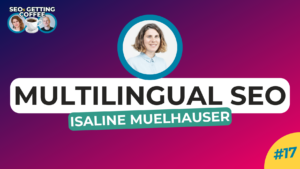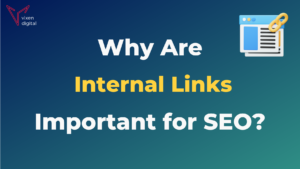In this episode of “SEOs Getting Coffee,” Sean and Emina delved deep into the nuances of keyword mapping, a cornerstone of effective SEO and content strategy. This post distills their rich conversation into actionable insights, helping you navigate the complexities of keyword mapping and its pivotal role in driving your website’s SEO success.
Watch Video
Approaching Keyword Mapping Like A Pro - SEOs Getting Coffee Ep. 11
Understanding Keyword Mapping
Keyword mapping is the strategic process of aligning your researched keywords with the content on your website. It’s a crucial step post-keyword research, ensuring that each page targets the right topics and terms to attract and engage the right audience. As Sean and Emina suggest, it’s not just about knowing which keywords to target but understanding where they fit within your site’s ecosystem to maximize SEO performance.
Differentiating Between Keyword Mapping and Content Mapping
A pivotal distinction highlighted in their discussion is between keyword mapping and content mapping. While the former focuses on assigning keywords to specific pages, content mapping involves aligning content with different stages of the customer journey. Despite their differences, both are deeply interconnected, working hand in hand to ensure content not only ranks well but also meets users’ needs at various touchpoints.
Leveraging Multiple Data Sources
One of the key takeaways from the conversation is the importance of utilising multiple data sources for effective keyword mapping. Beyond traditional SEO tools like SEMrush, integrating insights from Google Search Console, Google Analytics, and technical SEO assessments can offer a fuller picture of how keywords perform and interact with your content. This comprehensive approach helps in understanding the intent behind searches, enabling a more nuanced and effective keyword strategy.
Keyword Mapping Across Website Stages
Sean and Emina also discuss the adaptability of keyword mapping strategies based on the maturity of your website. For newer sites, the focus might lean more on foundational keyword research and content planning due to limited data. Conversely, established sites with extensive content can undertake a more detailed mapping exercise, optimizing existing content and uncovering new opportunities.
The Continuous Evolution of Keyword Research
Keyword research—and by extension, keyword mapping—is not a one-off task. It’s an ongoing process of refinement and discovery. Markets evolve, new trends emerge, and user behaviour changes, necessitating continuous updates to your keyword strategy. This iterative process ensures that your website remains relevant and competitive in the ever-changing SEO landscape.
Traffic and Conversion Data: The Untapped Goldmines
Analysing traffic and conversion data is crucial for understanding the effectiveness of your keyword mapping. Pages that attract significant organic traffic but were not initially targeted for specific keywords can reveal hidden opportunities. Similarly, evaluating the conversion performance of mapped keywords can guide adjustments, ensuring that SEO efforts contribute tangibly to business goals.
Beyond SEO Tools: The Human Element
Despite the sophistication of SEO software, Sean and Emina remind us of the irreplaceable value of human insight. Intuition and experience can identify potential keyword opportunities that tools may overlook, especially for niche or emerging topics. Moreover, the conversation touched on the significance of zero-volume keywords, which, despite their lack of apparent search volume, can drive highly qualified leads.
AI-Generated Content: A Double-Edged Sword
A thought-provoking segment of their discussion revolves around the increasing prevalence of AI-generated content on professional platforms like LinkedIn. While AI can streamline content creation, it raises concerns about the loss of authenticity and originality. The proliferation of AI-generated comments and posts could dilute the value of genuine professional interactions, a trend that merits cautious consideration.
Conclusion
Sean and Emina’s dialogue on keyword mapping shines a light on its complexities and nuances. Successful keyword mapping is not just about technical execution but also about understanding the broader context of your content’s role in the user journey.
By blending data-driven insights with human intuition, SEO professionals can craft strategies that not only enhance visibility but also drive meaningful engagement and conversions.
In an era where AI threatens to overshadow human creativity, let’s not forget the power of authentic, thoughtfully crafted content. As we navigate the evolving landscape of SEO, let the insights from “SEOs Getting Coffee” guide our strategies, ensuring that we remain focused on delivering value to our audiences in the most effective and genuine ways possible.







